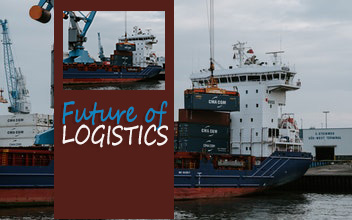The logistics experts have identified the following developments that will affect the logistics in the future. So, if you are part of this industry, please read on and do share your future trends.
Digitisation
Digitisation has ushered in breakthrough technology to work synchronously with physical assets in the Logistics sphere. Digitisation enhances the speed and efficiency of the logistics operations resulting in superior customer service and higher revenues per customer. To maximise the opportunity that digitisation brings to the industry, the concerned businesses are re-configuring their supply chain strategy. Internet of Things (IoT) has made massive inroads into supplu chain and logistics businesses as pert of the digitisation initiative. Companies are now using technology for inventory management, stock management, fleet optimisation, etc.
AI
Technologies such as gesture recognition , autonomous vehicles, robotics, automation are revolutionising the supply chain and logistics space. The newer avatars of cobots are easier to build and are affordable as well to implement.
Data-driven Collaborations
Data-driven procurement strategies, measurable supplier performance evaluations, data sharing within stake holders, etc are now the focus areas of supply chain initiatives. Close monitoring of data can help evaluate risks in the supply chain policies/strategies, optimise systems & processes and reduce excessive burden on assets.
Globalisation
The logistics business can be looked at operationally from two stand-points – Delivery of Service & Enabling of Service. While the former involves the actual performance of the logistics operations, the later is the planning and execution of the logistics business. Experts opine that the demands of the new business model would allow companies to operate globally – depending on the cost-talent-market trade-off. For example, while the service is rendered in one country (multiple countries), the operational strategies (planning, execution, performance analytics, etc.) may be handled from another country were talented human resources are available.
Wearable Technology
Wearable devices refers to devices designed for people to access data in real time, by wearing the device. Through proper data collection and analysis, wearable technology allows companies to maintain control of their inventories. They can also stay up-to-date with product demand. Supply chain managers can use wearable devices for accurate inventory management, stock movements, route monitoring, etc.












